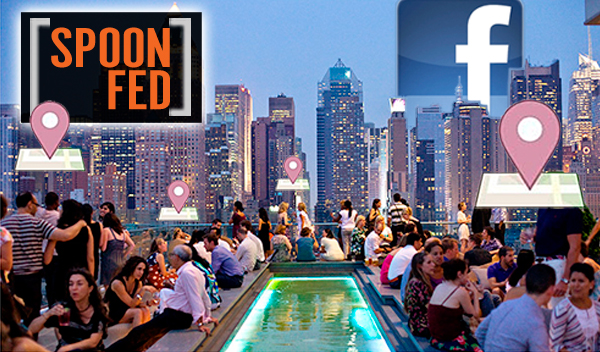Will Facebook Places Make Us More Human or Just Marketing Pawns?
Sign up to receive The Snapshot, a free special dispatch from Laptop Mag, in your inbox.
You are now subscribed
Your newsletter sign-up was successful
For years critics of Facebook have blamed the social networking service for making its users less, well, social. Why go out when you can just sit at home and tend to a virtual farm, muse on someone else's wall, or try to break your high score on Bejeweled Blitz? Facebook Places has the potential to silence those naysayers. It’s a new service (available in the updated iPhone app and via a mobile site) that encourages users to check in at bars, coffee shops, concerts, restaurants, and other locations where we interact with flesh-and-blood—and not just virtual—friends.
According to Facebook, the goal of this new feature is to keep the Third Place alive. That's what sociologist Ray Oldenberg calls the vital public spaces that exist between home and work, where we share our stories and ideas. During the launch event, vice president of product Chris Cox, who referenced Oldenberg, argued that Facebook Places would encourage its members not just to gawk at friends’ photos, but participate in the real world. However, what will we sacrifice by popping our protective bubbles?
Like Foursquare and Gowalla, Facebook Places lets you check in to various businesses and locations, but this service isn’t a game with badges or mayorships. Facebook says it’s really about sharing stories and “staying connected” to the friends around you. And yet Facebook Places will integrate with both Foursquare and Gowalla, leveraging Facebook’s API. So if you use either of those apps, you’ll be able to share those check-ins on your Facebook feed. The popular user-review service Yelp will also leverage Facebook’s platform. As you might expect, marketers want to be your friend, too.
Every time you check in to a location, you can see what other Facebook members are nearby (People Here Now), and an update will get posted to your Facebook page. Your check-ins will also appear on that location’s Facebook Places page, whether it’s a park, restaurant, or store. Unfortunately, according to one early review, you can’t block merchants from posting your check-in notices. So is Facebook Places really a do-good initiative or is it just another way for companies to hawk their wares based on your whereabouts?
A how-to guide distributed to marketers by Facebook says that “these check-in stories can generate powerful, organic impressions in friends’ News Feeds, extending your brand’s reach to new customers.” As TechCruch noted, while businesses cannot target people who check-in to places, they can target those who Like a business’ Places page. Facebook says that users of this new service won’t be bombarded with location-based offers at the start, but there’s no way the company can ignore an ad market that’s expected to ring up $4.1 billion in sales by 2015.
The good news is that Facebook has made a concerted effort to give Places’ users more control over their privacy settings. For example, by default the service will share your location only with friends. You can then narrow this group to only the people you specify, or open it up to friends of friends, or even everyone. When you check in to a place, you can remove yourself from the People Here Now feature if you prefer not to be discovered (though, in this case, it’s all or nothing). Another Facebook Places feature is tagging, so you can notify friends when you’ve arrived at a location. If you grant permission, friends can even check you into a location.
And that’s where Places really gets tricky. As Facebook opens up its service to third parties, the company says “your friends will be able to share your check-ins with the applications they use to help create new social experiences.” If Facebook doesn’t have the right safeguards in place, however, some of these experiences could be harmful. This week thousands of members enticed by an offer to download a Dislike button app were duped into adding $5 per month to their cell phone bills. Location adds yet another layer of potential danger.
Sign up to receive The Snapshot, a free special dispatch from Laptop Mag, in your inbox.
So, yes, in a way Facebook Places does put the “social” back in social networking. And the sheer number of people expected to use this service could enrich our lives as conversations get more local. But all of those drop pins falling from the sky could really sting unless Facebook deftly balances its desire to help us share stories with the temptation to line marketers’ pockets using our coordinates.
Editor-in-chief Mark Spoonauer directs LAPTOP's online and print editorial content and has been covering mobile and wireless technology for over a decade. Each week Mark's SpoonFed column provides his insights and analysis of the biggest mobile trends and news. You can also follow him on Twitter.


